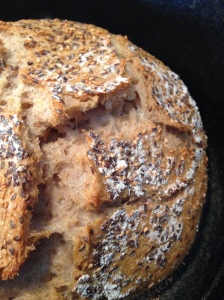On my drive in to the church today I was reflecting on how to respond to the events that have made news headlines over these past days. There has been yet another deliberate shooting of the innocent, an attempt to  take as many lives as possible. We extend our prayers and sympathies to the victims in Quebec City as well as to our Muslim neighbors here in Ottawa. That much is obvious. As the news is recounted on the radio connections are made to the way our southern neighbour is closing its doors to those who wish to flee violence in some of the most unstable parts of the world.
take as many lives as possible. We extend our prayers and sympathies to the victims in Quebec City as well as to our Muslim neighbors here in Ottawa. That much is obvious. As the news is recounted on the radio connections are made to the way our southern neighbour is closing its doors to those who wish to flee violence in some of the most unstable parts of the world.
It occurs to me that just as violence can creep through communities of faith and co-opt their commitment and devotion, so too it can poison the love of nation or culture. In a better world a person’s willingness to kill for an ideology, a faith, a culture or a nation would trigger some kind of automatic shutdown. It would tell us that we have gone too far and it would force us into some critical self-reflection. It would tell us that when our love for something we believe is ‘ours’ demands the death of others we have stooped too low. In a better world we would always recognize the inherent, divinely-ordained dignity of the lives of others.
The display of executive orders and the stories of bullets cutting through prayers tell us we do not live in such a world. We live in a world where those at prayer are targets and we live in a world were a superpower feels so vulnerable that it shuts its gates to the world’s most vulnerable. I look around at the other commuters and I wonder, again, how do we respond?
Part of the answer depends on who the ‘we’ is. When the ‘we’ is citizens there is the low-hanging fruit of getting to know our neighbours, especially those who are different from us. For citizens there is also the necessary pragmatics of politics and government policy. However, when I think of the ‘we’ as the Christian community I’m reminded that this last Sunday our congregation celebrated Communion. This little ritual celebration is central to our identity and any truly Christian response will find its roots in this practice.
As I drive I picture the bread and the wine taken from the altar and shared with all in attendance. The portions are tiny, but it symbolizes a meal. In Communion we are reminded of the fact that God’s love for human creatures is so intense and so real that God would suffer on their behalf. God would not only be the transcendent judge above the fray, but in love God would bear the wounds of the violence we inflict upon each other. When our community shares in Communion we make visible our belief that God’s sustaining power is offered to everyone. When we share in Communion we are saying that the bodies the violent seek to break are bodies God loves. They are bodies in which God’s breathe has been placed. When we share in Communion we proclaim that none are alone in suffering. We publicize our belief that God suffers with us—the whole way, even unto death.
Every celebration of Communion is a vigil for those who suffer. To share in the bread and cup is to offer as a public conviction the positive measure of suffering love and the stark condemnation of killing in the name of anything under God. When we share in these elements we rebel against the notion that wielding tools of death is as powerful as the violent would wish it. As God is with us in this celebration, so we intend to be with those who suffer, those left behind as a drawbridge is pulled up and those little ones whose fathers were shot in the back as they bowed before God. It tastes like bread and wine—but it is the presence of divine justice and love.
I turn off the radio and walk into the church. Before long we will hold this vigil again and we will make the same claims. Neither violence nor fear will dissuade us.
Thank you, Anthony, for this. A bit of calm in the storm.
LikeLike